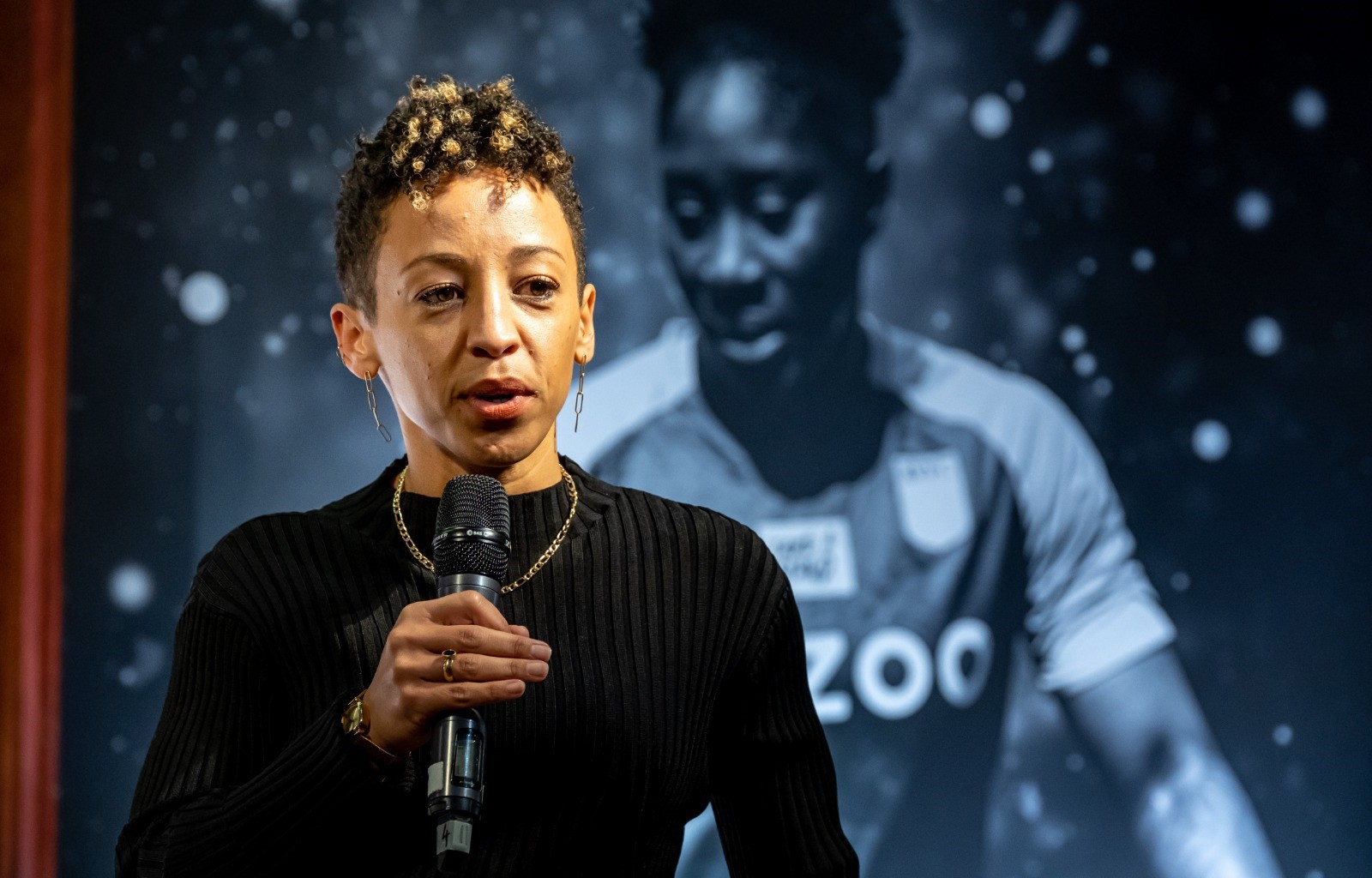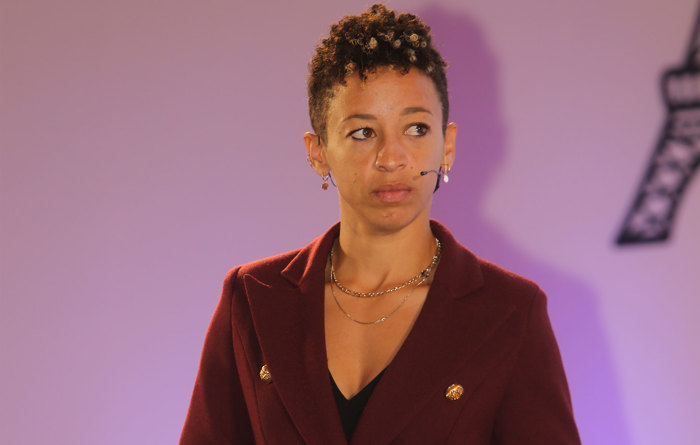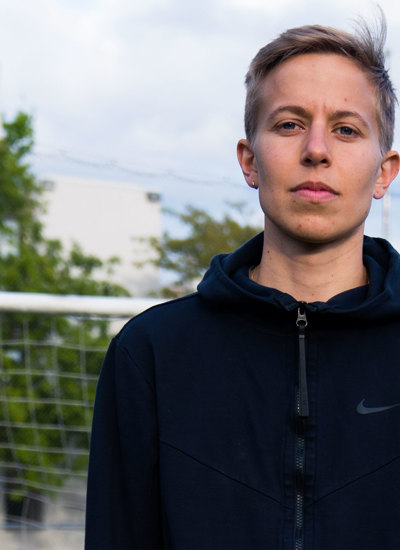
- Sarah Gregorius, who made 100 appearances for New Zealand, says discrimination is a violation of a person’s human rights
- The former player is a FIFPRO director and has multiracial heritage, born and raised in New Zealand with Dutch and Haitian ancestry
- She says football must become an environment where all people can thrive and not feel dehumanised in
As FIFPRO’s Director Global Policy & Strategic Relations for Women’s Football, Gregorius today helped launch the world player union’s anti-discrimination campaign called “#Its Personal”
One of the key elements of the campaign is a player-centric report about discrimination in the football industry. It is built around player stories, including personal opinion pieces from among others Anita Asante, Giorgio Chiellini, Gabriela Garton and Vincent Kompany. The report centres on their experiences and thoughts regarding discrimination and the work that must be done to combat it effectively.
“This is such a personal issue,” said Gregorius. “You can just feel the impact and the heartache felt from having to confront this issue day so often and in such a myriad of ways.”
“This isn’t a sports or football specific issue. This is a human issue that manifests itself in the football industry in a really damaging way, which affects players to the very core of their being.”
Gregorius said she was moved by the stories in the report and the experiences of many other players she spoke with, from instances of blatant discrimination such as being on the receiving end of derogatory slurs, to the more insidious and discrete experiences of discrimination such as consistent barriers or lack of protections that have denied players opportunity and, in some cases, resulted in abusive situations.
“Discrimination is wrong, it is awful and it is horrible to experience. It doesn’t matter how much money you make, what kind of profile you have or how privileged everyone might think you are to have a professional football career. To experience discrimination - whether that is homophobia, sexism, racism - is dehumanising. It makes you feel like less of a human being.”

Gregorius firmly believes that the first step towards solutions is introspection by all institutions and people associated with the game and how its run. “Unless we are honest with ourselves about the role that we have maybe played in perpetuating the problem, then we can’t honestly speak about solutions. It could be confronting for people to sit and reflect internally, but it must be done before looking externally at the role of others. I hope that process takes place.”
FIFPRO has gone through this process, Gregorius added. “We have taken a look at our organisation, our statutes, our board composition, and how we work and recruit within FIFPRO to continue to strive being reflective of the players we represent, and to advance the issues that matter to them.”. Other stakeholders too must proactively address diversity, equality and inclusion in their governance structures. “The leadership in football off the field needs to be more illustrative of what we see on the field.”
Next to that, more players need to be involved in the decision-making process, whether that is post-career or through a representative body, like a player organisation, Gregorius said.
The “Three-Step Protocol” used by UEFA and FIFA on how to deal with racism during matches, needs to be reviewed and re-vamped. “It has not adequately protected players,” Gregorius noted. “The application has been patchy, from the understanding by players and officials to its use and implementation. This is most evident in the cases where players simply have taken matters into their own hands and left the field of play altogether.”
“If the Three-Step Protocol is there to protect players against racist abuse when they are playing, then involve players in building the protocol. Let the players bring the perspective and the principals, and then we work together to figure out the application and the detail.”
“We cannot expect them to play under those circumstances”
Players want to and must be part of the solution, but shouldn’t be solely responsible, emphasized Gregorius. “You can’t expect the ones who are dealing with the impact of an issue to then be the ones charged to solve it. We all have to solve it together without putting undue pressure on someone to be both impacted and an educator. That’s completely unfair.” Gregorius spoke of many players sharing this reflection with her.
FIFPRO’s anti-discrimination campaign “#Its Personal” includes a video which shows football being abandoned by its main actors: the players. “Maybe to some it seems kind of extreme,” Gregorius said. “But we have already seen players walk off the pitch in certain situations.”
“We cannot expect them to play under those circumstances. We wouldn’t put up with the level of abuse that the players are experiencing in our normal work environments. Why would anyone remain in a situation where you are constantly dehumanised?”
“It is just a question: it is personal for the players, what is it for everyone else? What are you going to do and what can you do to better contribute to the creation of an environment where people can thrive and not feel dehumanised in?”


